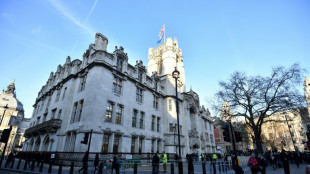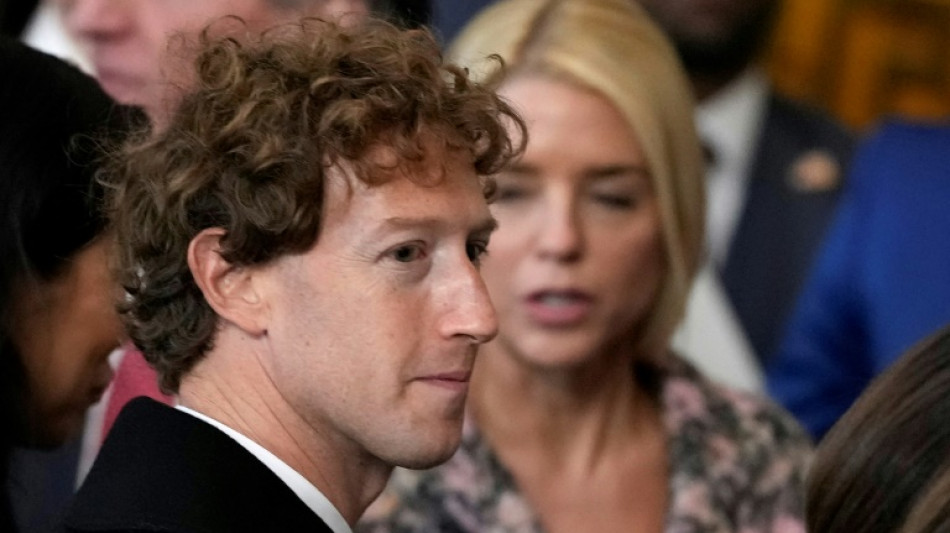
-
 WHO countries reach landmark agreement on tackling future pandemics
WHO countries reach landmark agreement on tackling future pandemics
-
Stocks struggle again as Nvidia chip curb warning pops calm

-
 China's economy beats forecasts ahead of Trump's 'Liberation Day'
China's economy beats forecasts ahead of Trump's 'Liberation Day'
-
China's economy beat forecasts in first quarter ahead of Trump's 'Liberation Day'

-
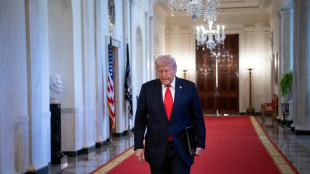 Trump orders critical minerals probe that may bring new tariffs
Trump orders critical minerals probe that may bring new tariffs
-
Onana faces date with destiny as Man Utd chase Lyon win
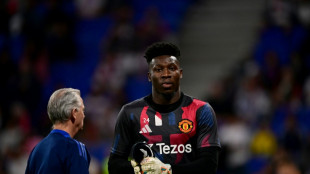
-
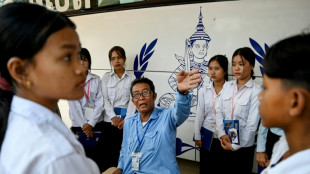 Lessons in horror with Cambodia's Khmer Rouge tribunal
Lessons in horror with Cambodia's Khmer Rouge tribunal
-
Pandemic agreement: key points

-
 Paramilitaries declare rival government as Sudan war hits two-year mark
Paramilitaries declare rival government as Sudan war hits two-year mark
-
Landmark agreement reached at WHO over tackling future pandemics

-
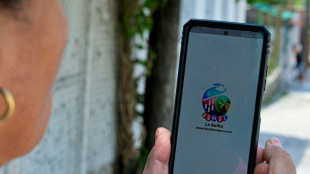 'La bolita,' Cuban lottery offering hope in tough times
'La bolita,' Cuban lottery offering hope in tough times
-
'Toxic beauty': Rise of 'looksmaxxing' influencers
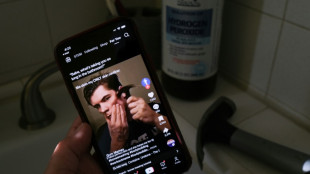
-
 Facebook added 'value' to Instagram, Zuckerberg tells antitrust trial
Facebook added 'value' to Instagram, Zuckerberg tells antitrust trial
-
Trump signs order aimed at lowering drug prices
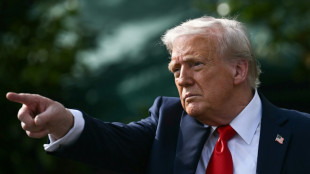
-
 Paramilitaries declare rival government as Sudan war enters third year
Paramilitaries declare rival government as Sudan war enters third year
-
Nvidia expects $5.5 bn hit as US targets chips sent to China
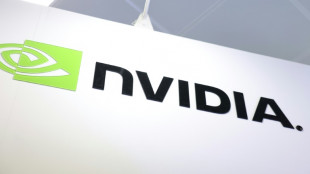
-
 Emery targets 'next step' for Aston Villa after Champions League heroics
Emery targets 'next step' for Aston Villa after Champions League heroics
-
'Gap too big' for Dortmund after first leg, says Guirassy

-
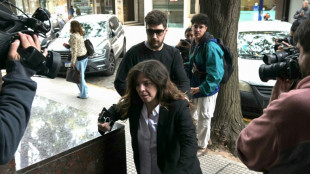 Maradona's daughter says doctors could have prevented his death
Maradona's daughter says doctors could have prevented his death
-
Barcelona 'justified' semi-final spot despite Dortmund loss, says Flick

-
 'We thought the tie was over': Dembele admits PSG switched off against Villa
'We thought the tie was over': Dembele admits PSG switched off against Villa
-
Wine consumption falls heavily into the red

-
 Barca through to Champions League semis despite Guirassy hat-trick
Barca through to Champions League semis despite Guirassy hat-trick
-
Global stocks mixed amid lingering unease over trade war
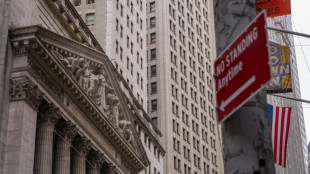
-
 PSG survive Aston Villa scare to reach Champions League semis
PSG survive Aston Villa scare to reach Champions League semis
-
Pandemic treaty talks fight late hurdles

-
 Trump resurrects ghost of US military bases in Panama
Trump resurrects ghost of US military bases in Panama
-
Family seeks homicide charges against owners of collapsed Dominican nightclub

-
 Sudan paramilitary chief declares rival government two years into war
Sudan paramilitary chief declares rival government two years into war
-
Boeing faces fresh crisis with US-China trade war
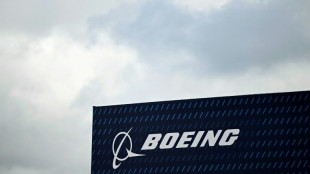
-
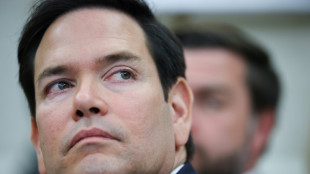 Trump eyes slashing State Department by 50 percent: US media
Trump eyes slashing State Department by 50 percent: US media
-
Canada offers automakers tariff relief, Honda denies weighing move

-
 Facebook added 'value' to Instagram, Zuckerberg says in antitrust trial
Facebook added 'value' to Instagram, Zuckerberg says in antitrust trial
-
French Ligue 1 clubs vote to break TV deal with DAZN
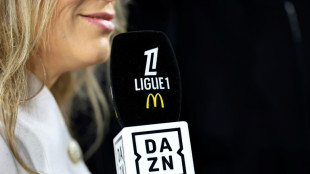
-
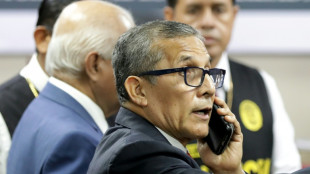 Peru court sentences ex-president Humala to 15 years for graft
Peru court sentences ex-president Humala to 15 years for graft
-
Sumy buries mother and daughter victims of Russian double strike

-
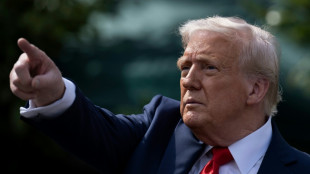 Trump says ball in China's court on tariffs
Trump says ball in China's court on tariffs
-
Kane urges Bayern to hit the mark against Inter in Champions League

-
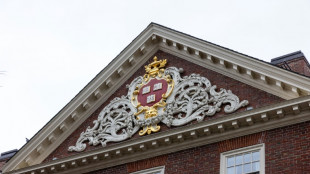 Trump ramps up conflict against defiant Harvard
Trump ramps up conflict against defiant Harvard
-
Arteta feeding Arsenal stars 'opposite' of comeback message
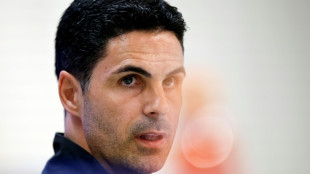
-
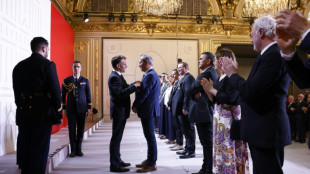 France's Macron honours craftspeople who rebuilt Notre Dame
France's Macron honours craftspeople who rebuilt Notre Dame
-
Watkins left on Villa bench for PSG return
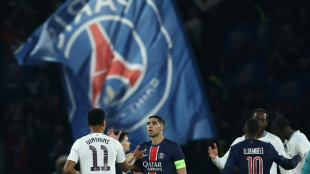
-
 Chahal stars as Punjab defend IPL's lowest total of 111 in 'best win'
Chahal stars as Punjab defend IPL's lowest total of 111 in 'best win'
-
French swim star Marchand considered taking year-long break

-
 Chahal stars as Punjab defend IPL's lowest total of 111
Chahal stars as Punjab defend IPL's lowest total of 111
-
Universal Studios, Venice Beach to host LA 2028 events

-
 IOM chief urges world to step up aid for Haiti
IOM chief urges world to step up aid for Haiti
-
French prisons hit by mystery arson and gunfire attacks
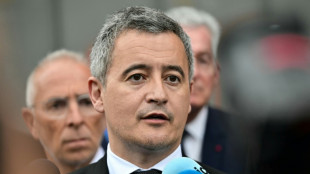
-
 Alcaraz follows Ruud into Barcelona Open last 16
Alcaraz follows Ruud into Barcelona Open last 16
-
Stocks rise on bank earnings, auto tariff hopes
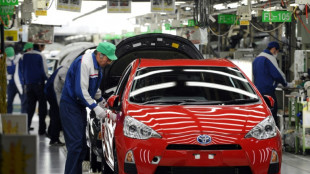

Meta chief Zuckerberg testifies at landmark US antitrust trial
Meta chief and co-founder Mark Zuckerberg took the stand Monday in a landmark US anti-trust trial in which his social media juggernaut stands accused of abusing its market power to acquire Instagram and WhatsApp before they could become competitors.
The start of the trial in a Washington federal court dashed the hopes of Zuckerberg that the return of Donald Trump to the White House would see the government let up on the enforcement of antitrust law against Big Tech.
The Meta case is being made by the Federal Trade Commission (FTC), the powerful US consumer protection agency, and could see the owner of Facebook forced to divest Instagram and WhatsApp, which have grown into global powerhouses since their buyout.
"They decided that competition is too hard and it would be easier to buy out their rivals than to compete with them," FTC attorney Daniel Matheson said in opening remarks at the trial.
Meta attorney Mark Hansen countered in his opening salvo that "acquisitions to improve and grow an acquired firm" are not unlawful in the United States and that is what Meta, then called Facebook, did.
The trial will be run and decided by Judge James Boasberg, who is also presiding over a high-profile case involving White House orders to deport Venezuelans without a hearing, using an obscure wartime law, on grounds they belong to dangerous gangs.
The case against Meta was originally filed in December 2020, during the first Trump administration, and all eyes were on whether he would ask the FTC to stand down.
Zuckerberg, the world's third-richest person, has made repeated visits to the White House as he tries to persuade the US leader to choose settlement instead of fighting the trial, a decision that would be extraordinary at this late stage.
As part of his lobbying efforts, Zuckerberg contributed to Trump's inauguration fund and overhauled content moderation policies. He also purchased a $23 million mansion in Washington in what was seen as a bid to spend more time close to the center of political power.
The Meta lawsuit represents one of five major tech antitrust actions recently initiated by the US government.
Google is facing two cases and was found guilty of search-market dominance abuse last August, while Apple and Amazon are also heading to court.
Zuckerberg, his former lieutenant Sheryl Sandberg, and a long line of executives from rival companies are scheduled to testify at a trial expected to last at least eight weeks.
Central to the case is Facebook's 2012 billion-dollar purchase of Instagram -- then a small but promising photo-sharing app that now boasts two billion active users.
An email from Zuckerberg cited by the FTC showed him depicting Instagram's emergence as "really scary," adding that is "why we might want to consider paying a lot of money for this."
The FTC argues that Meta's $19 billion WhatsApp acquisition in 2014 followed the same pattern, with Zuckerberg fearing the messaging app could either transform into a social network or be purchased by a competitor.
Meta's defense attorneys will argue that its substantial investments transformed these acquisitions into the blockbusters they are today.
They will also highlight that Meta's apps are free for users and face fierce competition.
The FTC argues that Meta's monopoly power is demonstrated by a severely downgraded user experience -- with too many ads and product changes that users have no choice but to tolerate.
- Defining the market -
A key courtroom battleground will be how the FTC defines Meta's market.
The US government argues that Facebook and Instagram are dominant players in apps that provide a way to connect with family and friends, a category that does not include TikTok and YouTube.
But Meta disagrees. "The evidence at trial will show what every 17-year-old in the world knows: Instagram, Facebook and WhatsApp compete with Chinese-owned TikTok, YouTube, X, iMessage and many others," a spokesperson said.
"The bigger that Meta can make the relevant market... the more likely it is to defeat the FTC's case," said lawyer Brendan Benedict on Substack.
A.Zbinden--VB

